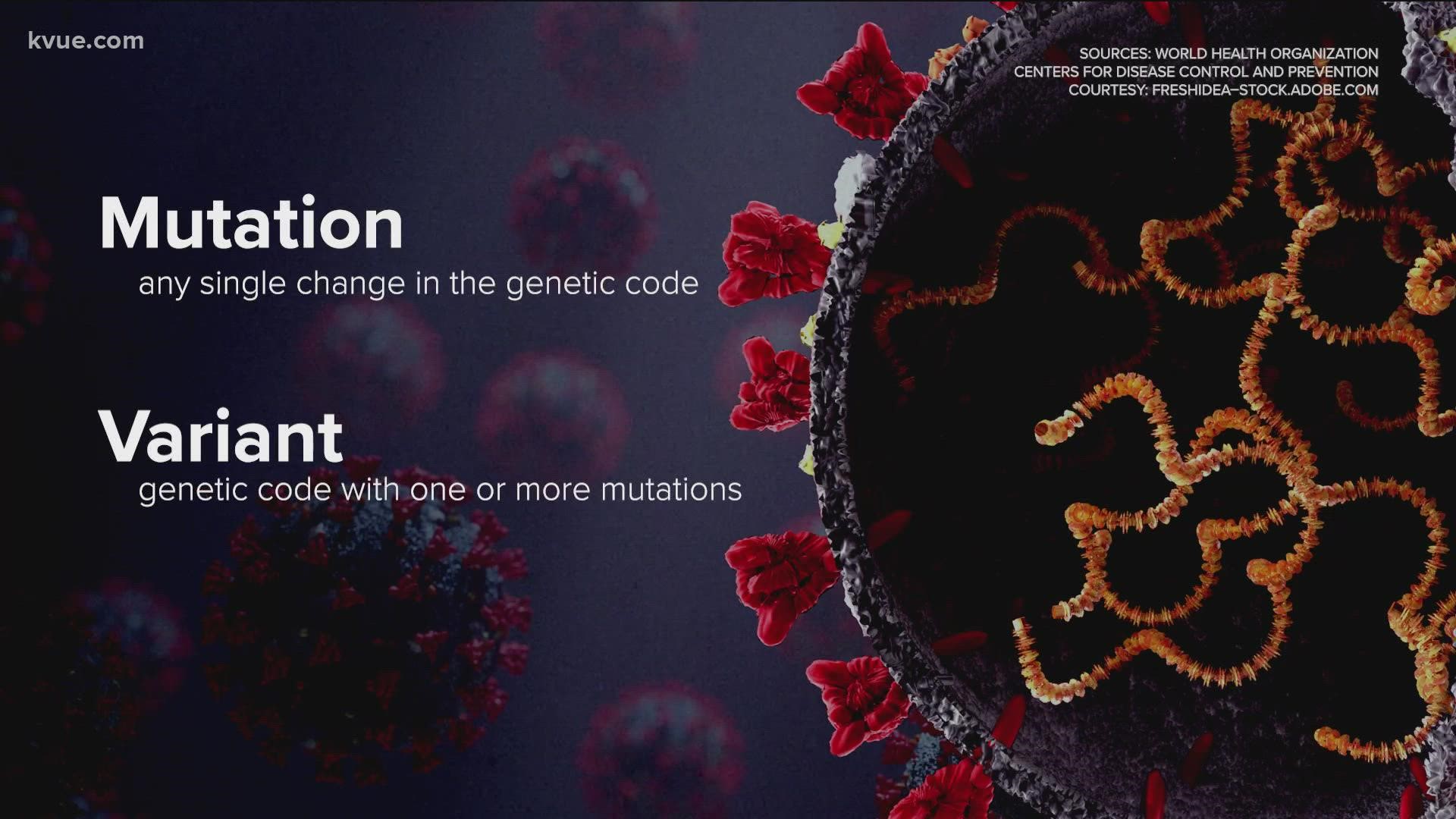AUSTIN, Texas — SARS-CoV-2 is the virus that causes COVID-19.
The World Health Organization’s website shows, “All viruses, including SARS-CoV-2, the virus that causes COVID-19, change over time.”
The U.S. Centers for Disease Control and Prevention’s website echoes that definition showing, “Viruses like SARS-CoV-2 continuously evolve as changes in the genetic code (genetic mutations) occur during replication of the genome.”
As this evolution happens, scientists define the changes in a few ways, including mutation and variant.
Mutation is any single change in the genetic code. This is the SARS-CoV-2 original code. Variant is a genetic code with one or more mutations.
Scientists monitor all variants and rank them on the impact or potential impact to health. The CDC has four classifications: variant being monitored (VBM), variant of interest (VOI), variant of concern (VOC) and variant of high consequence (VOHC).
Variants being monitored and variants of interest have no or limited impact on the public. The WHO has two variants of interest and 20 variants being monitored since the start of the pandemic. The CDC shows no SARS-CoV-2 variants of interest.
The WHO defines variant of concern as one showing an “increase in transmissibility or detrimental change in COVID-19 epidemiology; OR increase in virulence or change in clinical disease presentation; OR decrease in effectiveness of public health and social measures or available diagnostics, vaccines, therapeutics.”
The CDC’s definition is similar, showing, “A variant for which there is evidence of an increase in transmissibility, more severe disease (e.g., increased hospitalizations or deaths), significant reduction in neutralization by antibodies generated during previous infection or vaccination, reduced effectiveness of treatments or vaccines, or diagnostic detection failures.”
WHO shows five variants of concern around the world, including omicron and delta. The U.S. lists delta only, as of Nov. 29.
The classification variant of high consequence means our current measures do not work to protect the public. No VOCHs have been issued.
There are no known cases of the omicron variant of concern in the U.S. It was discovered in South Africa, but the origin is unknown.
The omicron variant is already in several other countries, according to WHO. The World Health Organization labeled the omicron variant as a variant of concern because, “This variant has a large number of mutations, some of which are concerning. Preliminary evidence suggests an increased risk of reinfection with this variant, as compared to other VOCs.”
Scientists found 30 mutations according to South African health authorities. The South African health department shows the omicron variant cases outpaced the delta cases in the past two weeks. South Africa’s full vaccination rate is 24%. The U.S. is at 58% fully vaccinated.
Still unknown is:
- How easily omicron spreads
- Severity of disease
It may take weeks to fully understand the omicron variant.
PEOPLE ARE ALSO READING:

